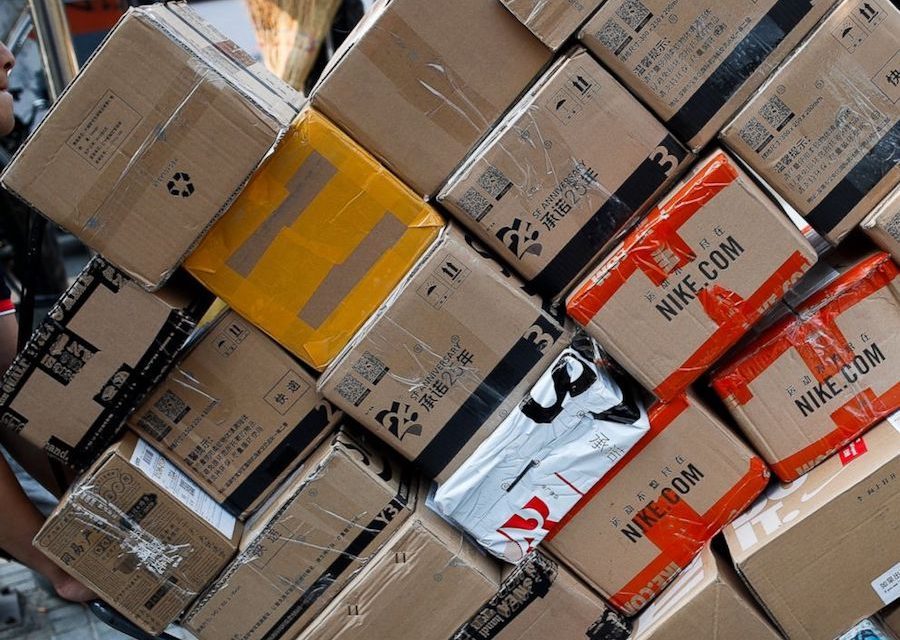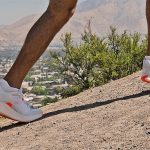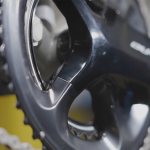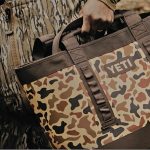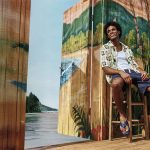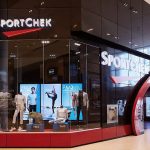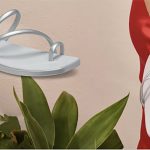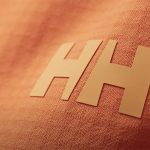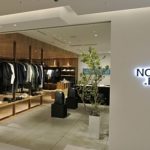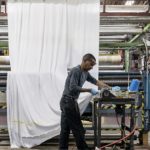While no trade deal has been reached between the U.S. and China, the news around tariffs has been more favorable than unfavorable since the start of the year. But some industry players still have been raising prices, purchasing early to avoid hits and taking other steps to mitigate their potential impact.
Encouraging news arrived late February when President Donald Trump delayed the March 1 deadline to increase tariffs on a batch of $200 million in Chinese imports. Those tariffs were set to rise from 10 percent to 25 percent on March 2 but were delayed because of progress in negotiations and those talks have continued to be positive.
The $200 billion in goods – often described as the “third wave” of tariffs since the trade dispute began last July – included certain sports products, such as backpacks, sports bags, leather ski gloves, camp stoves, camp chairs, bikes, and bicycle parts.
An even more encouraging result was that the delay meant that a “fourth wave” of tariffs threatened on another $267 billion of goods was put on hold as talks continue. The “fourth wave” would have included apparel, footwear and a number of other major categories critical to the active lifestyle industry.
Trade talk was barely mentioned on recent quarterly conference calls among apparel and footwear vendors but continued to loom as a concern for categories that have already been hit.
The following are some comments from recent quarterly conference calls.
- Clarus Corp, the parent of Black Diamond and Sierra Bullets, saw tariffs have a negligible impact on 2018. Based upon those enacted to date, tariffs are expected to have a $450,000 impact in 2019. Steps are being taken to mitigate the impact. Said Aaron Kuehne, chief administrative officer and CFO, on the company’s fourth-quarter conference call on March 4, “While it is still unclear if additional tariffs will be levied, we are focused on four primary mitigating activities. First is resourcing. We are working with our diversified supply chains and coming up with different sources for the product coming out of China. Second is repricing. We are working with our retailers to pass along some of the costs. Given our pace of recent product innovation however, these conversations are a natural progression, and we believe will have a positive outcome. Third is re-costing. We’ve been working with our vendors to renegotiate costing to offset some of the impacts of the tariffs. And finally, we are optimizing logistics to avoid the US on international shipments.”
- Nautilus’ inventories at year-end expanded 28.3 percent partly due to lower-than-expected fourth-quarter sales but also due to a strategic buildup to mitigate supply-chain uncertainties from potential international tariffs. Said Bruce Cazenave, CEO, on the company’s Q4 conference call on February 25, “We did take the initiative at the time we were going into the later part of Q4, there was still a lot of debate about tariffs and potentially if we could get rolled into that. So we did take a position, a heavier position than we normally would have just in case those tariffs did affect us. So some of that was self-created and some of it was not self-created by design.” Cazenave resigned as CEO on March 1.
- VF Corp, the parent of The North Face, Vans, Timberland and a number of other outdoor, work and denim brands, said last October during its second quarter conference call that only about 11 percent of its U.S. imports come from China as exposure to the country has been reduced for a number of years. Strong relationships with factory partners were expected to help VF reposition its global sourcing footprint to minimize the damage should the tariffs start affecting footwear and apparel categories. On its third-quarter conference call on January 18, CEO Steve Rendle followed those comments by saying, “As it relates to trade, the impact to-date has been de minimis. We continue to monitor this situation closely and are developing continuity plans for potential outcomes.”
- On December 10, GoPro announced it was moving production of “most” of its U.S.-bound cameras” out of China to avoid being caught up in the trade war. On its Q4 conference call on February 6, Brian McGee, CFO, said the action camera company will begin ramping up U.S.-bound camera production in Guadalajara, Mexico in the second quarter. Production will be maintained in China for non-US-bound cameras. Said McGee, “While the threat of tariffs served as a catalyst to an improved supply chain efficiency, this approach makes strategic sense regardless of tariffs. And we expect to generate modest savings to boot.”
- Johnson Outdoors said the tariffs had a $700,000 impact on gross margins in its first quarter ended December 28, according to the company’s conference call on February 4. While working on mitigating the impact, Johnson Outdoors, whose biggest business is fish finders and trolling motor foot pedals, is still projecting tariffs to have a potential $6 million to $9 million impact on the fiscal 2019 profits. Year-over-year inventories at the quarter’s end were up 28.0 percent in part because some inventory was purchased prior to the expected date the tariff changes were expected to be effective. Said David Johnson, VP & CFO, on the inventory build-up, “We expect comparisons prior year will improve over the next few months.”
- Callaway Golf told analysts on its quarterly conference call on February 6 that gross margins for 2019 will be partly impacted by anticipated unfavorable foreign currency rate and tariff rates. Overall, gross margins are expected to rise 50 basis points due to further improvement in gross margins in its business generally, including the TravisMathew and Jack Wolfskin brands, which generally have higher gross margins than its golf equipment business.
- American Outdoor Brands’ inventories were up 6.9 percent at the close of its third quarter ended January 31 in part due to a planned transition to a new logistics facility in Jacksonville, FL but also because its Outdoor Products & Accessories division accelerated the purchase of some inventory relating to high volume SKUs to help mitigate any potential China tariff impacts. The segment includes shooting, cutlery, tools, and survival products.
- On its third-quarter conference call on February 8, Vista Outdoors’ CEO Chris Metz said the uncertainty around the impact of tariffs was partly the reason for its revision to full-year sales projections. Metz said, “We’ve also seen some retailers hold-off on buying products due to the uncertainty surrounding tariffs on goods coming from China, while the tariffs themselves are on the whole, not a material impact to Vista.” The CEO also said cautious buying stances are being adopted by retail customers due to the general softness at retail and the lingering impact of multiple consolidations and bankruptcies. Vista’s brands include Federal Premium, CamelBak, Bushnell, Primos, Camp Chef, and Blackhawk!.
- On its fourth quarter conference call on January 31, Brunswick Corp. said it still expected its Marine business to face an impact to 2019 pretax earnings of $17 million to $22 million related to tariffs this year. The expectation assumed the “wave three” China tariffs rose to 25 percent on March 2 and assumed no impact from the potential “wave four” round of tariffs. which would have a minimal impact on the Marine business. The fitness business was estimated to feel an estimated $8 million to $10 million negative impact on pretax earnings in 2019 due to the potential “wave four” of China tariffs. Brunswick officials noted that in Canada, boat sales were down last year in the second half in part because of dealers limited off-season orders due to retaliatory tariffs on products imported from the U.S., which comprised more than half of booked sales in Canada.
- On its third quarter conference call on January 8, Helen of Troy’s CEO, Julien Mininberg, said the tariff increases began to impact the company’s cost to goods sold during the third quarter, as expected. Pricing actions are expected to provide a “meaningful offset” to the tariffs in its fourth quarter and those actions are expected to be effectively completed in the first quarter of fiscal 2020. Still, Mininberg at the time indicated that a 25 percent tariff impact on cost translates to 11 percent to 13 percent increase on the price of the product to retailers. Said Mininberg, “As such, even if we keep ourselves hold in gross dollars, the gross profit margin is expected to decline. Further, although the pricing actions are intended to keep us whole in terms of gross profit dollars, there is no guarantee that they won’t reduce retail consumption or customer orders in the short-term. We have not resolved product pricing with one key retailer in two product categories and we are currently not shipping these particular items to this one customer. While we expect some disruption from pricing actions in the short-term, including the fourth quarter of fiscal 2019, we believe we are making the right choices for the long-term health of our business and that our products continue to offer attractive value propositions at the higher prices.” The one customer not being shipped involves the housewares’ segment, which includes Hydroflask and OXO. Helen of Troy’s other major brands includes Vicks, Braun, Honeywell, PUR, and Hot Tools.

